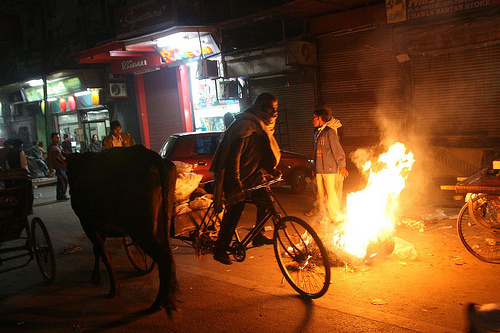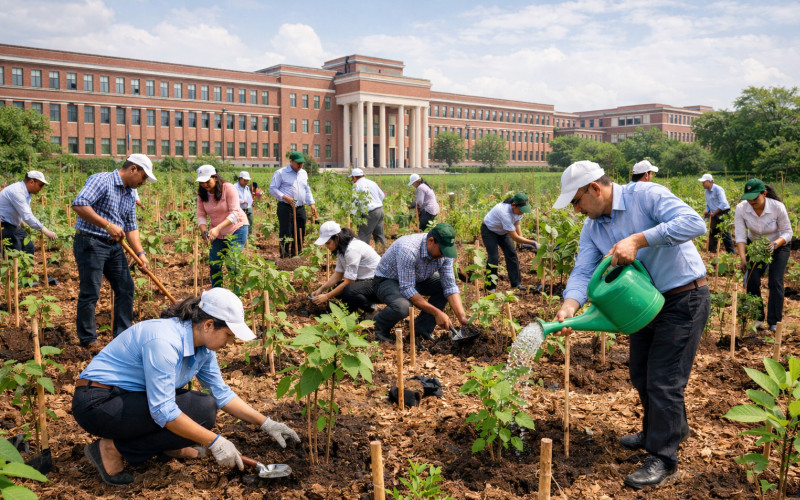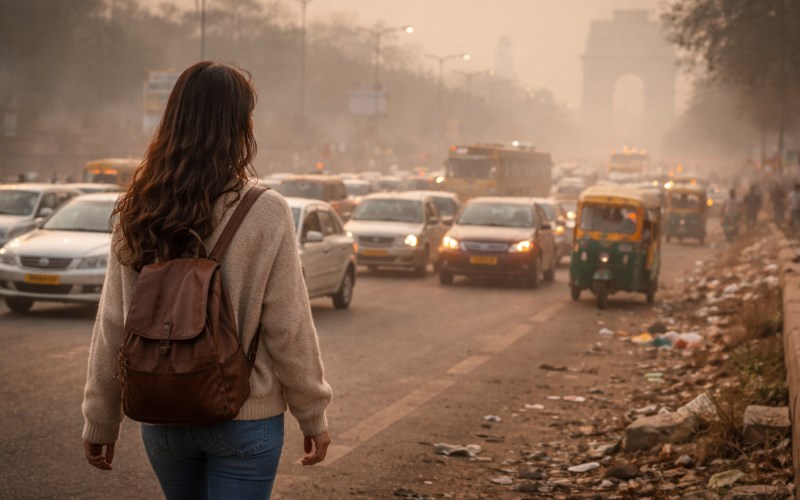
In the present day world, disasters are considered to be nothing more than consequences of inappropriately managed risks. These risks are in turn the product of hazards and vulnerability. Hazards that strike in areas with low vulnerability are not considered a disaster, as is the case in uninhabited regions. On the other hand, rapidly urbanizing cities like Delhi are much prone to disasters largely owing to increasing densities of people and infrastructure. One such hazard with a rapid potential of turning into disaster is fire. Delhi alone registers over ten thousand cases of fire every year!! Before you start asking where to get an extinguisher, here is what more you should know about preventing fire incidences in your area.
The number of people exposed to all kinds of disasters is expected to more than double to 1.5 billion by 2050, with 200 million of them in India. Fire is a disaster to which almost everyone in an urban setting has some degree of vulnerability. It is for this reason that it is important to learn about fire preparedness. Only a prepared urban setting, fitted with most logical fire prevention and management strategies can reduce causalities percentages and aggravation of a fire incident. Casualties resulting from fires, regardless of their source or initial cause, can be aggravated by inadequate emergency preparedness. In addition to this, lack of accessible emergency exits, not knowing from where to where to get an extinguisher, poorly marked escape routes, or improperly maintained fire extinguishers or sprinkler systems results in many more deaths and injuries than might occur with such protections.
Here are some simple tips you can use to avoid fire accidents, courtesy DDMA:
1. Make it a habit to switch off gas supply from the cylinder every night before going to bed.
2. Switch off all the electrical appliance when not in use.
3. Use electrical extension cords wisely and do not overload them.
4. Keep clothes, curtains and other potentially combustible items at least three feet from room heaters.
5. Do not allow children to play with matchboxes or lighters and electrical appliances like room heaters, iron and hair dryers.
6. Keep a fire extinguisher in your home/ office and also learn how to use it.
Delhi has a good fire fighting system in place. However, high population density, crowded streets, unmatching mixed occupancies, inadequate water supply, poor electrical services, unplanned siting of fire stations and encroachments are reasons why the fire response time gets delayed rather frequently. A response time of 3 minutes in urban areas and 5 minutes in rural areas is the set target which becomes difficult to achieve due to the above mentioned constraints. Fire fighting in the walled city area of Old Delhi is a challenge in itself. It therefore become each one of us’s responsibility to prevent the very occurrence of a fire incidence. It is also safe to conclude that fire safety should be made an integral part of the urban planning process, rather than an after thought.
Image by Tom Spender over Creative Commons




Nice tips to avoid fire accidents. I like this blog, environment issues are very important especially in Cities.